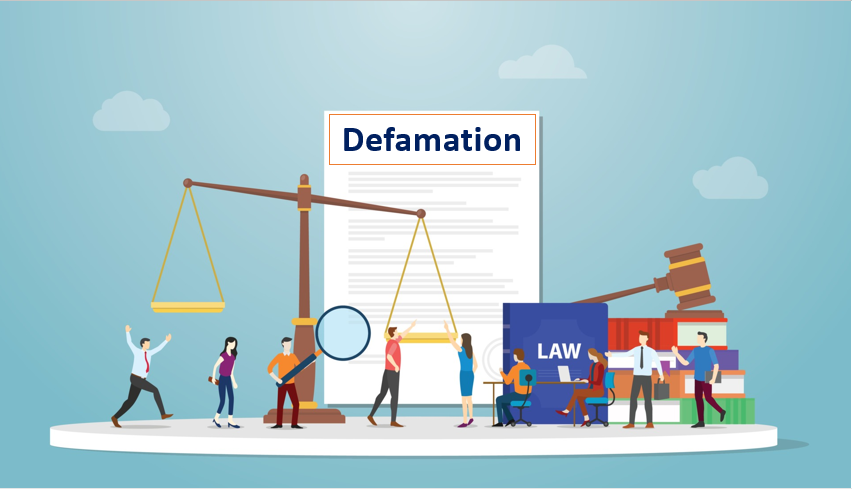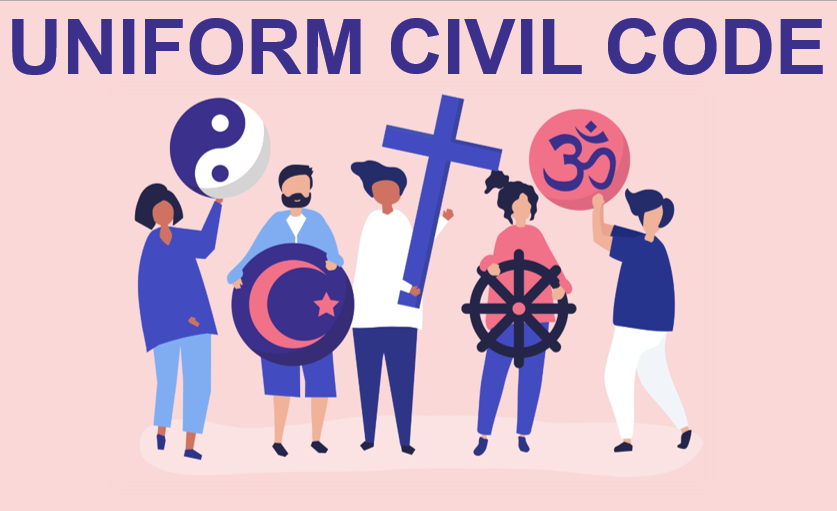Published On: 6th September, 2024
Authored By: Lakshmi S Nair
Government Law College, Thiruvananthapuram, Kerala
Abstract
Fundamental rights enshrined in the Indian Constitution are the bedrock of the nation’s democratic framework, embodying the principles of justice, liberty, equality, and fraternity. This article discusses the historical context and philosophical principles that influenced the framers, including India’s colonial experience, global human rights movements, and social reform initiatives. Six major categories of fundamental rights are covered in the analysis: the rights to equality, freedom, protection from exploitation, freedom of religion, cultural and educational rights, and constitutional remedies.
The paper also explores significant amendments and landmark judicial interpretations that have expanded and redefined these rights over time, demonstrating their dynamic and adaptive nature. It addresses the reasonable restrictions imposed on these rights to maintain public order, national security, and moral standards, ensuring a balance between individual freedoms and collective interests.
Furthermore, the role of political institutions in upholding and enforcing these rights is examined, highlighting their responsibility in empowering citizens, particularly minorities, to live with dignity. The conclusion emphasizes the essential nature of fundamental rights in sustaining India’s democracy, reflecting their ongoing evolution in response to the aspirations and challenges of a diverse society. This comprehensive overview underscores the significance of fundamental rights as both legal provisions and vital elements of India’s constitutional framework.
FUNDAMENTAL RIGHTS IN THE INDIAN CONSTITUTION
Introduction
“Fundamental rights are the conscience of the Constitution.” – Dr. B.R. Ambedkar
The Constitution of India, adopted in 1950, enshrines a comprehensive framework of Fundamental Rights designed to safeguard the liberties and freedoms of individuals and to ensure the dignity and equality of all citizens. These rights are essential for the overall development of individuals and for the functioning of a democratic society. It reflects the core values of justice, liberty, equality, and fraternity. These rights are indispensable for human existence and crucial for individual and societal development. Without fundamental rights, a person’s existence would be devoid of value, and the notion of democracy would be meaningless.
The Indian Constitution meticulously categorizes these fundamental rights into six groups: Right to Equality, Right to Freedom, Right against Exploitation, Right to Freedom of Religion, Cultural and Educational Rights, and Right to Constitutional Remedies. Each category addresses specific aspects of individual freedom and societal harmony, ensuring a comprehensive protection of civil liberties.
By guaranteeing these fundamental rights, the Indian Constitution not only protects individual freedoms but also promotes the collective well-being of society, ensuring that democracy thrives in its true essence.
Historical Context and Philosophy
The inclusion of Fundamental Rights in the Indian Constitution draws inspiration from various sources, including the United States Bill of Rights, the British constitutional system, and the Universal Declaration of Human Rights. The framers of the Constitution aimed to create a balance between individual liberty and social justice, reflecting the aspirations of a newly independent nation striving for equality and development.
India’s long struggle against British colonial rule had a profound impact on the nation’s leaders and people. The oppressive policies of the colonial government, which included restrictions on freedom of speech, assembly, and association, highlighted the necessity of protecting individual liberties. The framers of the Indian Constitution were aware of international developments and the importance of protecting human rights globally.
Categories of Fundamental Rights
The Fundamental Rights in the Indian Constitution are broadly classified into six categories:
1.Right to Equality (Articles 14-18):
- Article 14 guarantees equality before the law and equal protection of the law.
- Article 15 prohibits discrimination on grounds of religion, race, caste, sex, or place of birth.
- Article 16 ensures equality of opportunity in matters of public employment.
- Article 17 abolishes untouchability and forbids its practice in any form.
- Article 18 abolishes titles, except military and academic distinctions.
2.Right to Freedom (Articles 19-22):
- Article 19 grants citizens the freedom of speech and expression, assembly, association, movement, residence, and profession.
- Article 20 provides protection in respect of conviction for offenses, prohibiting ex post facto laws, double jeopardy, and self-incrimination.
- Article 21 ensures protection of life and personal liberty.
- Article 21A mandates free and compulsory education for children between 6 and 14 years.
- Article 22 offers protection against arbitrary arrest and detention, guaranteeing rights like being informed of grounds of arrest and the right to consult a legal practitioner.
3.Right against Exploitation (Articles 23-24):
- Article 23 prohibits human trafficking, forced labor, and similar forms of exploitation.
- Article 24 forbids the employment of children below the age of 14 years in hazardous occupations.
4.Right to Freedom of Religion (Articles 25-28):
- Article 25 ensures the freedom of conscience and the right to freely profess, practice, and propagate religion.
- Article 26 grants freedom to manage religious affairs.
- Article 27 prohibits the use of state funds for promoting any religion.
- Article 28 allows for freedom from religious instruction in certain educational institutions.
5.Cultural and Educational Rights (Articles 29-30):
- Article 29 protects the interests of minorities by allowing them to preserve their culture, language, and script.
- Article 30 grants minorities the right to establish and administer educational institutions of their choice.
6.Right to Constitutional Remedies (Article 32):
- Article 32 provides the right to move the Supreme Court for the enforcement of fundamental rights. Dr. B.R. Ambedkar called this article the “heart and soul” of the Constitution.
Amendments and Judicial Interpretations
The scope of fundamental rights has been expanded and interpreted through various amendments and landmark judgments by the Supreme Court of India. The judiciary has played a crucial role in safeguarding these rights against legislative and executive encroachments.
Amendments
- First Amendment (1951): Introduced restrictions on the freedom of speech and expression to prevent challenges to social legislation.
- Seventeenth Amendment (1964): Provided for nationalization of banks and insurance companies, impacting property rights.
- Forty-Second Amendment (1976): Widely amended provisions related to fundamental rights during the Emergency period, aiming to strengthen Directive Principles over fundamental rights.
- Ninety-Third Amendment (2005): Introduced the Right to Education as a fundamental right for children aged 6-14 years.
Judicial Interpretations
- Right to Privacy: In Justice K.S. Puttaswamy (Retd.) vs. Union of India (2017), the Supreme Court declared the right to privacy as a fundamental right under Article 21, impacting personal autonomy and data protection.
- Freedom of Speech and Expression: Various cases, including Bennett Coleman & Co. vs. Union of India (1972) and Indian Express Newspapers (Bombay) Pvt. Ltd. vs. Union of India (1985), have expanded protections for media freedoms and citizen’s right to information.
- Equality and Non-Discrimination: Landmark cases like State of Karnataka vs. Krishnappa (2000) and Indra Sawhney vs. Union of India (1992) have addressed reservations and affirmative action policies to uphold equality.
- Right to Life and Personal Liberty: Maneka Gandhi vs. Union of India (1978) expanded the scope of Article 21 to include procedural due process and fair treatment.
- Freedom of Religion: Cases like Shirur Mutt Case (1954) and Srimad Perarulala Ethiraja Ramanuja Jeeyar Swami vs. State of Tamil Nadu (1972) have clarified the rights of religious denominations and institutions.
These interpretations and amendments highlight the dynamic nature of fundamental rights in India, ensuring they remain relevant and responsive to evolving societal needs and challenges while upholding the core principles of justice, equality, and liberty.
Limitations and Restrictions
While fundamental rights are essential, they are not absolute. The Constitution permits reasonable restrictions on these rights in the interest of sovereignty, integrity, security of the state, public order, decency, morality, and other considerations.
- Reasonable Restrictions: Almost every fundamental right in the Indian Constitution is subject to reasonable restrictions. These restrictions are outlined under Articles 19(2) to 19(6) and other relevant articles pertaining to specific rights. They include restrictions to protect:
- Sovereignty and Integrity of India: Preventing activities that threaten the unity and territorial integrity of the nation.
- Security of the State: Prohibiting actions that may endanger national security or lead to external aggression.
- Friendly Relations with Foreign States: Restraining activities that may harm diplomatic relations with other countries.
- Public Order: Preventing actions that disturb public peace and tranquility.
- Decency and Morality: Limiting speech or conduct that may offend public decency or morality.
- Contempt of Court: Restricting criticism that undermines the authority or dignity of the judiciary.
- Defamation: Protecting the reputation and rights of individuals from false or damaging statements.
- Emergency Provisions: During a state of emergency, declared under Article 352, certain fundamental rights can be suspended or limited more extensively. The Constitution distinguishes between a national emergency (due to war or external aggression), a state emergency (due to failure of constitutional machinery in a state), and financial emergency (due to financial instability).
The Supreme Court of India plays a vital role in interpreting the scope and applicability of these limitations. Over the years, the Court has established principles and tests to determine whether restrictions imposed by laws are reasonable and justified. Some notable principles include:
- Proportionality: The restriction must be proportionate to the need it seeks to address. Excessive or arbitrary restrictions are deemed unconstitutional.
- Legality: Restrictions must be prescribed by law, meaning they must be based on valid legislation passed by a competent legislative body.
- Clarity and Certainty: Laws restricting fundamental rights must be clear and precise, ensuring citizens understand the nature and scope of the restrictions.
Balancing Rights and Public Interest
The concept of reasonable restrictions reflects the Indian Constitution’s attempt to balance individual rights with the broader interests of society and the state. While fundamental rights guarantee significant freedoms, they are not absolute licenses for unchecked behavior. Instead, they are subject to limitations that aim to maintain public order, protect national security, and uphold societal values.
In conclusion, the limitations, and restrictions on fundamental rights in India are carefully crafted to ensure a harmonious balance between individual liberties and collective interests. They reflect a constitutional framework designed to protect and promote democracy, justice, and the rule of law in a diverse and complex society.
CONCLUSION
Fundamental rights are the cornerstone of the Indian democratic framework, reflecting the core values of justice, liberty, equality, and fraternity. They ensure that citizens can lead their lives with dignity and freedom, fostering an environment where every individual can realize their full potential. The dynamic interpretation and robust enforcement of these rights continue to uphold the principles of democracy and the rule of law in India. Rooted in India’s historical struggle for independence and influenced by global human rights movements, these rights safeguard individual dignity and freedom while promoting societal well-being.
Amendments and judicial interpretations have dynamically shaped and expanded these rights, ensuring their relevance in a changing society. Although these rights are subject to reasonable restrictions to maintain public order, national security, and moral standards, they remain vital for the protection and empowerment of individuals, particularly minorities.
Political institutions play a crucial role in upholding these rights, ensuring that democracy thrives by balancing individual liberties with collective interests. In essence, fundamental rights are the lifeblood of India’s democratic ethos, continuously evolving to meet the aspirations of its diverse population and uphold the principles of justice, liberty, and fraternity.
REFERENCE
- https://byjus.com/free-ias-prep/fundamental-rights/
- https://knowindia.india.gov.in/profile/fundamental-rights.php
- https://infinitylearn.com/surge/english/essay/essay-on-fundamental-rights/
- https://fortleeortho.com/constitution-why-and-how-class-11-notes/
- Ansari, M. N. A. (1994). A Study of Judicial Review of Administrative Actions in India. https://core.ac.uk/download/144512387.pdf
- https://blogs.repute.net/tag/pdp-2019/


